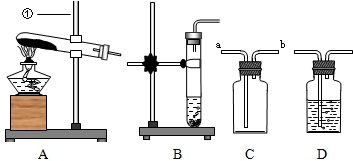The Commission is expected to propose allowing people to choose which (36) they would come under, based on their (37) or their residency. But the proposal is set to (38) because of the very different laws on divorce that apply across the EU. The Commission wants to (39) problems over which law to apply when, for example, a married couple from one member state is resident in another member state or when the couple is of different ELI nationalities.
The (40) of member states are said to be (41) the idea and responded positively to a (42) which followed the (43) of a Commission Green Paper. With 15% of German divorces each year involving couples of different nationalities, the government of Berlin (44) see resolved the issue of which laws should apply.
But some member states are expected to resist the (45) which would involve allowing different divorce laws to be applied in their countries. For example, Malta does not allow divorce. The proposal would mean that although Maltese nationals could not divorce in Malta, a couple of different EU nationality (46) in Malta could apply to the Maltese court for a divorce under their country’s laws. Similarly in Ireland where the divorce law states a couple must have been separated for four years, establish that their marriage has broken down and be offered (47) a couple from Sweden could apply to an Irish court to allow them to divorce under Swedish law, where divorce can be (48) quickly. The Irish government’s submission to the Commission on the Green Paper stated: "reland is not in favor of allowing (49) to choose the applicable law, as this could be open to abuse ... such abuse would be likely to (50) most on divorce regimes, such as that of Ireland, which require a relatively long separation period."
Ireland, like the UK, however, is allowed to choose whether to "opt-in" to such a proposal under rules agreed in the Amsterdam treaty. Malta has no such (51) but could (52) the proposal in the Council of Ministers since (53) approval will be required. "It is going to lead to (54) said Geoffrey Shannon, Irish expert on the Commission on European Family Law, which examines the (55) of EU family law. The proposal would also mean that judges would have to be trained in the divorce law of all 25 member states.
The Commission is expected to propose allowing people to choose which (36) they would come under, based on their (37) or their residency. But the proposal is set to (38) because of the very different laws on divorce that apply across the EU. The Commission wants to (39) problems over which law to apply when, for example, a married couple from one member state is resident in another member state or when the couple is of different ELI nationalities.
The (40) of member states are said to be (41) the idea and responded positively to a (42) which followed the (43) of a Commission Green Paper. With 15% of German divorces each year involving couples of different nationalities, the government of Berlin (44) see resolved the issue of which laws should apply.
But some member states are expected to resist the (45) which would involve allowing different divorce laws to be applied in their countries. For example, Malta does not allow divorce. The proposal would mean that although Maltese nationals could not divorce in Malta, a couple of different EU nationality (46) in Malta could apply to the Maltese court for a divorce under their country’s laws. Similarly in Ireland where the divorce law states a couple must have been separated for four years, establish that their marriage has broken down and be offered (47) a couple from Sweden could apply to an Irish court to allow them to divorce under Swedish law, where divorce can be (48) quickly. The Irish government’s submission to the Commission on the Green Paper stated: "reland is not in favor of allowing (49) to choose the applicable law, as this could be open to abuse ... such abuse would be likely to (50) most on divorce regimes, such as that of Ireland, which require a relatively long separation period."
Ireland, like the UK, however, is allowed to choose whether to "opt-in" to such a proposal under rules agreed in the Amsterdam treaty. Malta has no such (51) but could (52) the proposal in the Council of Ministers since (53) approval will be required. "It is going to lead to (54) said Geoffrey Shannon, Irish expert on the Commission on European Family Law, which examines the (55) of EU family law. The proposal would also mean that judges would have to be trained in the divorce law of all 25 member states.
